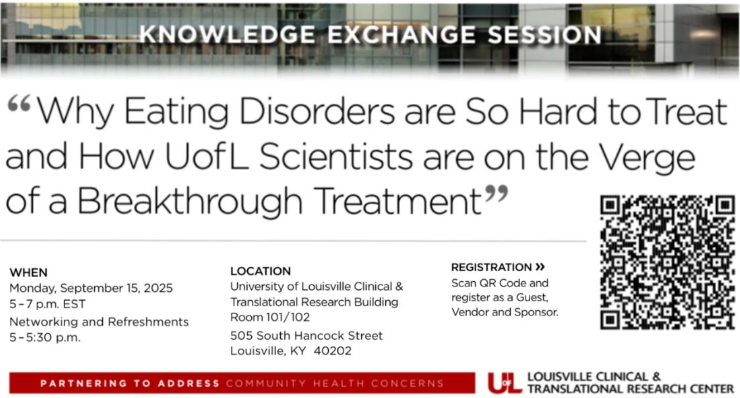Impact of Eating Disorders
Every 52 minutes, someone dies from an eating disorder. EDs have the second-highest psychiatric-related mortality rate, next to opioid addiction. ED imposes a $391 billion cost due to healthcare, informal care, as well as losses in productivity, efficiency, and well-being, based on 2018-2019 data.
What are the Main Eating Disorders?
There are three major eating disorders, namely anorexia nervosa, bulimia nervosa, and binge eating disorder. Anorexia involves severe restriction of food intake, intense fear of weight gain, and dangerously low body weight. Bulimia consists of cycles of binge eating, followed by purging behaviors like vomiting, laxatives, and over-exercising. Binge eating is defined by repeated incidences of overeating without purging.
Treatment Gaps
Even though eating disorders take countless lives and create serious health and financial burdens, there are still no proven treatments for adults with anorexia nervosa (AN). Moreover, enhanced cognitive-behavior therapy (CBT-E), the leading treatment for bulimia and binge eating, only helps half of the people with these disorders. The low response rate to treatment for eating disorders (EDs) is mainly due to a wide variation in symptoms, even among people with the same diagnosis. In other words, no two patients “look” quite like another person. Consequently, current “one-size-fits-all” treatments often fail to address these differences. As a result, clinicians must rely on their own judgement on which symptoms to focuson during treatment. However, their judgment can be biased. Consequently, there is an urgent need for treatments that improve response rates to ensure treatment works for all patients with EDs. These treatments require both easy application and feasible expansion into the healthcare system so clinicians can use them to effectively treat ED.
Groundbreaking Personalized Treatment for Eating Disorders
The initial findings from a randomized controlled trial conducted by clinicians at the University of Louisville suggest that a groundbreaking, evidence-based, personalized treatment for ED (EBPT-ED) outperforms traditional enhanced cognitive- behavioral therapy (CBT-E) in improving treatment outcomes. EBPT-ED uses continuously collected data from each patient (e.g., heart rate, heart rate variability, stress levels, sleep patterns) to understand their specific challenges better. This advancement is significant because personalized treatment allows therapists to address the complex nature of eating disorders better. With a focus on contexts and triggers relevant to each patient, EBPT-ED offers hope for more effective recovery pathways compared to conventional methods. The clinicians of precision ED include PI, Dr. Cheri A. Levinson, and Co-Is: Dr. Irina Vanzhula, Dr. Juan Hernandez.
Upcoming Knowledge Exchange Session
We’re proud to feature Drs. Levinson, Vazhula, and Hernandez, remarkable leaders of eating disorder research, will present their groundbreaking research at our upcoming Knowledge Exchange Session on September 15th, 5-7 pm, at UofL, 505 S. Hancock St, KY 40202. They will share a TED Talk-style presentation to both scientists and community members on “Why Eating Disorders Are So Hard to Treat – and How UofL Scientists Are on the Verge of a Breakthrough Treatment”.
Join us to shine light on new solutions https://bit.ly/KnowledgeXchange. Vendors & sponsors are welcome to make this an accessible and welcoming event for all attendees. Parking vouchers for our garage available upon request.
Date: Monday, Sept. 15 Time: 5–7 PM (Networking & Refreshments 5-5:30 pm)
Event Host: Dr. La Creis Kidd, Dr. Kelli Bullard Dunn, Dr. Shantoria Gonya, Rodriguez Holt, Cortney Britt
ABOUT THE SPEAKERS

Dr. Cheri Levinson – Licensed psychologist, clinical supervisor, and Full Professor at UofL in the Departments of Pediatrics and Psychological & Brain Sciences; Director at the Louisville Center for Eating Disorders.

Dr. Irina Vanzhula – Assistant Research Professor at the UofL Eating Anxiety Lab, currently leading a clinical trial on personalized eating disorder interventions.

Dr. Clarissa Ong – Assistant Professor in UofL’s Department of Psychological & Brain Sciences and Director of the Process-Oriented Intervention Science Lab.

Editor: La Creis Kidd, PhD, MPH, Co-Coordinator of Community Engagement & Outreach
G3813 – Eating Anxiety Treatment (EAT) Laboratory Gift Fund. Checks can be made out to the UofL Foundation, Inc. with the gift name in the memo. They can be mailed to :
University of Louisville Foundation, Inc.
c/o PNC Lockbox
PO Box 772050
Chicago, IL 60677-2050
Gifts can also be made online at give.louisville.edu
















